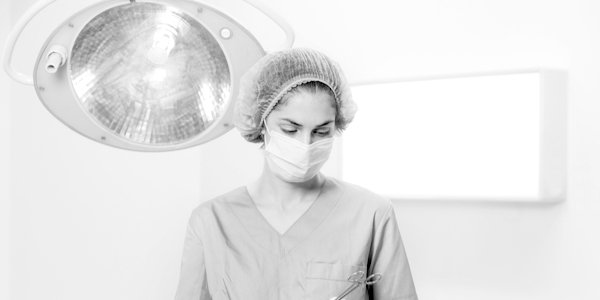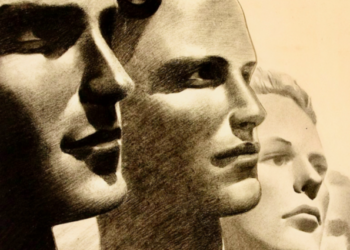OH, DEARY ME! Yet another article about how stressed nurses were during the covid ‘pandemic’. In fact, there was a veritable pandemic of publications on this very issue that was picked up early in 2020.
Linked in one of our favourite newsletters CIDRAP (The Center for Infectious Disease Research and Policy at the University of Minnesota) is an article from the International Nursing Review (INR), which claims that the first three years of the ‘pandemic’ were ‘hard on nurses’, leading to stress, burnout and mental health challenges. The work was carried out surveying over 9,000 nurses in low-, high- and middle-income countries. The fact that the authors refer to the ‘first three years’ suggests that they think it is not yet over.
Who would have known that making TikTok videos and, for most nurses (certainly in the UK), sitting about all day doing virtually nothing could be so stressful. In the UK, I can vouch for at least one family member who was run off her feet running the local Ebola ward (yes, we have one) as a covid ward, attaching all comers to a ventilator and watching people die.
As far as ventilators are concerned, we are now aware that this was, clinically, one of the biggest mistakes in the ‘pandemic’. In fact, locally, critical care staff became aware of this a few weeks into the covid fiasco but were prevented under the threat of non-disclosure agreements from sharing this vital information. They stopped using ventilators, but elsewhere in the UK and across the world it continued with disastrous outcomes.
While all this hyperactivity was taking place in critical care units across the UK, most hospital wards were empty. The NHS had been closed to all but emergency cases, and covid, a mild respiratory infection from which most people made a full recovery, became that emergency. All it took was a positive test (often regardless of symptoms) and you were hospitalised; you would have been very lucky if you were not attached to the next available ventilator.
Strangely, while the doom and gloom in UK hospitals was being reported, almost with alacrity, we were also treated to interviews with leading infectious disease specialists sitting in completely empty and very expensive Nightingale wards, built especially to deal with the excessive covid cases that were predicted. They were never used. China dismantled theirs within a few weeks in 2020 while ours persisted, unused, until the end of 2021. I imagine my infectious disease colleagues were disappointed.
The UK was not alone in the ventilator-oriented approach to managing covid, as copious footage from around the world shows. Some low-income countries had very few ventilators, so we were treated to wards overflowing with patients in appalling conditions; it is ever thus. We are never shown empty wards during health emergencies. Witness those witless celebrities who report from the far-flung and less-fortunate corners of the world during those nauseating outpourings of national guilt, Red Nose Day and Comic Relief, always to a backdrop of overcrowded misery and suffering.
Where nurses and other care professionals are concerned, stress and burnout are certainly an issue, and I have published work in this area. However, if you ask someone if they are stressed, the response is rarely ‘no’. It is more important to seek what the causes and consequences of that stress are, and how these are related to individual differences such as personality and resilience.
For example, in the INR study, it says that there was a range in reported stress with nearly 70 per cent of nurses in Brazil compared with less that 24 per cent of nurses in Indonesia reporting workplace stress. Could this be due to relatively more sensible management of the covid situation in Indonesia than in Brazil, where covid measures were extreme and punishment severe? In fact, could all the observed phenomena be related to covid measures rather than the virus itself?
There are two other major issues with the study: there are no comparative data before or after the ‘pandemic’, therefore what is being reported may be the normal background level of stress experienced by these nurses; and as the authors indicate, the retrospective data were collected late in the ‘pandemic’, up to October 2023. By this time, pandemic panic mentality had become fully embedded, nurses were told that it had been stressful during covid, and they duly and dutifully reported that it had been.
In addition to the data on stress, it is reported in the INR article ‘most notably’ that ’20 per cent of nurses surveyed suffered the loss of a family member, 35 per cent lost a friend, and 34 per cent a coworker to Covid-19’. I am disinclined to believe this on two grounds: first, most people do not know anyone who died of covid; second, while it says ‘to Covid-19’, this is vague as it does not specify if this was ‘of’, ‘with’ or ‘during’ covid. We know that covid deaths were greatly exaggerated due to the misdiagnosis of covid and the misclassification of death due to covid and, if you wait long enough, regardless of what is going on, you may lose someone.
There is good reason for believing, as I do, that there never was a covid pandemic. In a recent entry on their excellent Where are the Numbers? Substack, Professors Norman Fenton and Martin Neil explain, providing three good reasons, why the covid pandemic was mostly either manufactured or imagined.
Finally, I have little doubt that nurses did experience stress during covid. I did, being locked down, having to wear a mask and worrying about what would happen if any of my loved ones was taken ill with cancer or cardiovascular disease, which were not being attended to during our extensive lockdown. As it transpires, we all survived covid with flying colours. The only covid-related injury was to my 29-year-old son, who suffered a stroke as a result of the covid vaccine. Ironic or what?










